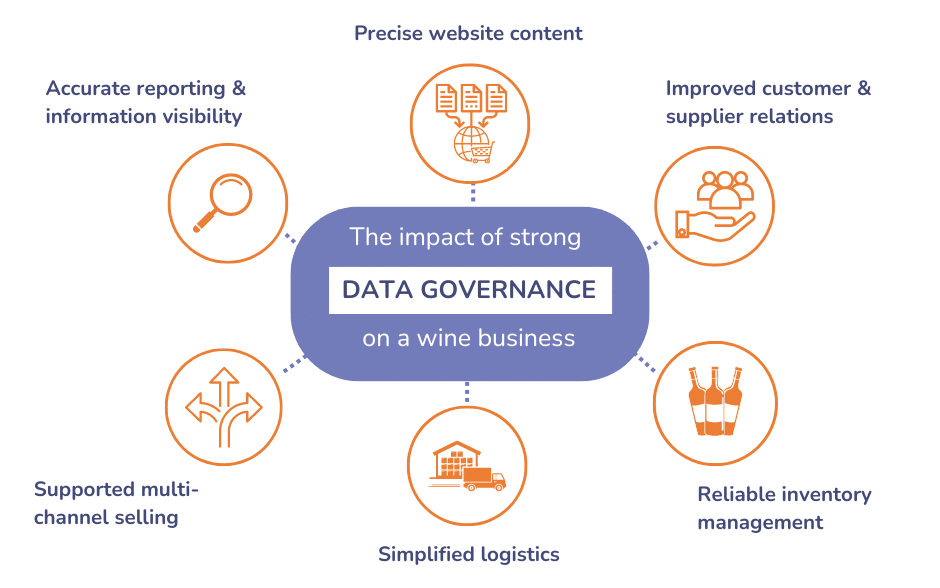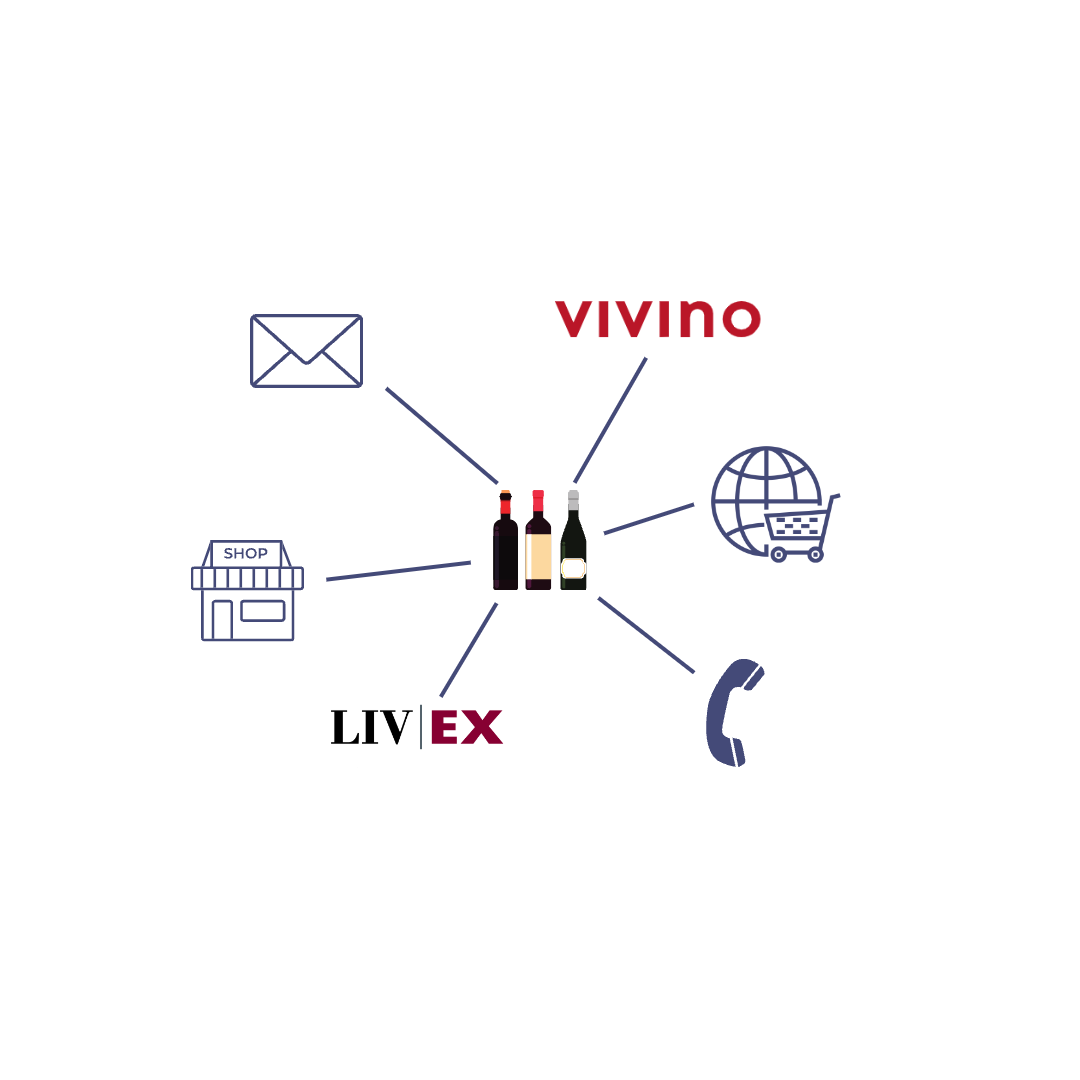In the wine industry, copious amounts of wine references, a lack of barcodes / unique IDs, the challenge of logistics and the vast range of pricing structures for agencies and importers, are just a handful of the complexities that are simplified and made much more manageable if a business’s data is governed well.
We explain here how data governance can turn your ambitions of scaling your wine business into a reality.

Satisfy customers and earn their loyalty
Consumers want access to wines and service from their chosen wine retailer or merchant whenever, and wherever they want. This could be dropping into a shop to pick up bottles, messaging to discuss their portfolio, calling to instruct consignment of a few cases onto Liv-ex, or ordering wine they’ve seen online at 10pm so they can get it delivered for the weekend.
The always on and consistently accurate customer service requirement continues in B2B, where wine importers are dealing with the on-trade. The expectation is for instant and exact margin calculations, despite variable pricing group rules and discounts, whilst also considering net available stock on hand, versus pending stock that’s in the supply chain (subject to estimated due landing dates). That’s a lot to get right on the spot.
Both scenarios exemplify the importance of accurate data, stock positions and statuses, which demand properly mastered data to be able to satisfy the needs of disparate customer groups.
Eradicate warehouse delivery confusion
You’ll know that the reconciliation of wines that arrive at a warehouse can be a bit of a nightmare, and that’s because deliveries are often partial or cross over multiple purchase orders – or wines arrive in different pack sizes. Simply using your purchase orders as pre-advice creates more work. It leads to mistakes because warehouses don’t always know the difference between one wine from a producer and a different but similar sounding one, and all of a sudden the recording of your stock is wrong or unreliable.
Which is why mastering data is also about knowing where it is, what’s due to arrive and what has arrived, what’s not yet in bottle, or is still elsewhere. That means being able to split purchase orders, to select specific lines from purchase orders that need to go onto a shipment, and using that documentation to pre-advise the warehouse on exactly what’s on the truck or the ship.
Accurate content for selling wine online
The majority of wine retailers, merchants and even producers now have an eCommerce platform. The content overhead of being online is significant, whether its producer level content, reviews, scores, product definitions – and the impact of that on team members is huge when you need to re-originate all that from scratch. Content admin becomes 50-75% of the working day, taking people away from connecting with clients and building relationships.
At Wine Owners we created a huge referential database of content that we link to Liv-ex’s LWIN database (comprising 80,000 wine name references) for the Wine Hub. Benefits are:
- It massively reduces the overhead of going online, because it saves quite a bit of manual rekeying effort. The mastered inventory, with product definitions, associated information and rich content can all be mastered in one place and allocated for sale into your e-commerce channel – and other sales and marketing channels.
- Purge duplicate incoming data, which makes it a lot easier to analyse purchasing history, assists targeting of wine offers and helps with accurate calculation of product-level and product category margins and profitability.
Mastered wine inventory for multi-channel selling
As more wine and spirit businesses develop their suite of selling channels to expand trading and sourcing opportunities, managing inventory and fulfilment well has become a significant issue.
How do you master inventory for e-commerce and other channels, phone based orders and say Liv-ex at the same time? It’s an inventory availability and scaling issue.
Poor data mastering can result in mistakes that cost money and customer loyalty; and which also absorbs an enormous amount of staff time.

Prioritise data governance to grow your wine business
In the wine industry, where complexity meets customer demand, data management is an unglamorous, but essential discipline. From managing inventory across multiple channels to ensuring accurate content for online selling, mastering data matters.
Given that customers expect seamless experiences and instant access to information, the importance of data governance cannot be overstated. It is the foundation upon which customer satisfaction, loyalty, and operational efficiency are built.